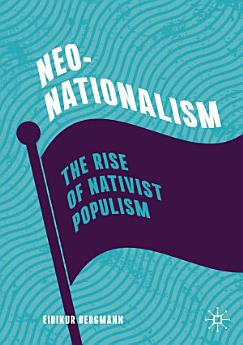Neo-Nationalism: The Rise of Nativist Populism
May 2020 · Springer Nature
Ebook
235
Pages
reportRatings and reviews aren’t verified Learn More
About this ebook
This book maps three waves of nativist populism in the post-war era, emerging into contemporary Neo-Nationalism. The first wave rose in the wake of the Oil Crisis in 1972. The second was ignited by the Collapse of Communism in 1989, spiking with the 9/11 terrorist attacks. The third began to emerge after the Financial Crisis of 2008, soaring with the Refugee Crisis of 2015. Whether the Coronavirus Crisis of 2020 will lead to the rise of a fourth wave remains to be seen. The book traces a move away from liberal democracy and towards renewed authoritative tendencies on both sides of the Atlantic. It follows the mainstreaming of formerly discredited and marginalized politics, gradually becoming a new normal. By identifying common qualities of Neo-Nationalism, the book frames a threefold claim of nativist populists in protecting the people: discursively creating an external threat, pointing to domestic traitors, and positioning themselves as the true defenders of the nation.
About the author
Eirikur Bergmann is Professor of Politics at Bifrost University, Iceland, and Director of its Centre for European Studies. He is author of nine academic books, and three novels. He is a frequent commentator in media on politics and European affairs.
Rate this ebook
Tell us what you think.
Reading information
Smartphones and tablets
Install the Google Play Books app for Android and iPad/iPhone. It syncs automatically with your account and allows you to read online or offline wherever you are.
Laptops and computers
You can listen to audiobooks purchased on Google Play using your computer's web browser.
eReaders and other devices
To read on e-ink devices like Kobo eReaders, you'll need to download a file and transfer it to your device. Follow the detailed Help Center instructions to transfer the files to supported eReaders.






